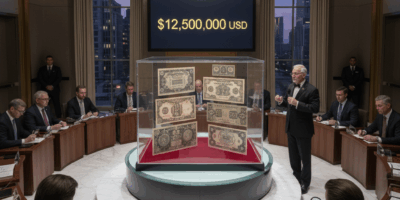The XYZ Affair Explained
The XYZ Affair was a diplomatic incident that took place between 1797 and 1798. It involved the United States and the French Republic, leading to a quasi-war at sea. Tensions arose over American neutrality during the French Revolutionary Wars. Both political and diplomatic complexities marked this period.

Background Context
The turmoil started with the Jay Treaty in 1794. The United States and Great Britain signed this treaty to settle outstanding issues from the Revolutionary War. However, France saw it as a breach of their 1778 alliance. The French began seizing American ships trading with Britain. This act strained Franco-American relations significantly.
Diplomatic Delegation
To resolve these tensions, President John Adams sent a diplomatic delegation to France in 1797. The delegation included Charles Cotesworth Pinckney, John Marshall, and Elbridge Gerry. Their mission was to negotiate and stabilize relations with the French Directory.
The Controversial Demands
Upon arrival, the American envoys faced unexpected demands. Three French agents later referred to as X, Y, and Z, proposed bribes and loans as prerequisites for negotiation. They demanded a substantial loan to France, along with personal payments to French officials. This offended the American representatives, who refused to comply.
Public Revelation
The incident became public in the United States in 1798. President Adams reported the situation to Congress, omitting the French agents’ names, thus referring to them as X, Y, and Z. The revelation stirred public outrage across the nation. It contributed to growing anti-French sentiment and calls for action.
Political Impact
The XYZ Affair had significant political ramifications. It led to a surge in support for the Federalist Party, which advocated for a strong national defense. Conversely, it weakened the Democratic-Republican Party, which favored pro-French policies. This incident intensified partisan divisions in American politics.
Quasi-War at Sea
Following the affair, tensions escalated into an undeclared naval conflict, known as the Quasi-War. From 1798 to 1800, American and French ships engaged in hostilities in the Caribbean Sea and Atlantic Ocean. The United States Congress authorized naval actions to protect American commerce from French attacks.
Resolution
The Quasi-War ended with the Convention of 1800, also known as the Treaty of Mortefontaine. This agreement resolved the conflict, ending the alliance of 1778 but ensuring peace between the two nations. It marked a significant diplomatic victory for the United States.
Long-Term Consequences
The XYZ Affair had lasting effects on American foreign policy. It underscored the importance of national sovereignty and independence in diplomatic matters. Additionally, it laid the groundwork for future military and naval expansion. The incident also shaped popular perception of government transparency and accountability.
Conclusion
Though rooted in diplomatic strife, the XYZ Affair influenced the United States’ approach to international relations for years to come. It represented the complexities of alliances and the challenges of maintaining neutrality amidst global conflicts.
“`
Recommended Collecting Supplies
Coin Collection Book Holder Album – $9.99
312 pockets for coins of all sizes.
20x Magnifier Jewelry Loupe – $13.99
Essential tool for examining coins and stamps.
As an Amazon Associate, we earn from qualifying purchases.



